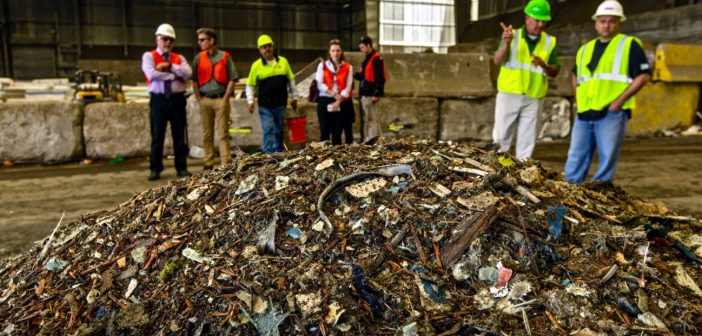Where do old boats go to die? Getting rid of old, unwanted boats has been a problem ever since fiberglass replaced wood in production boat building half a century ago. Old boats are a blight at the edges of many boat yards and marinas; some are simply abandoned at water’s edge, turning into eyesores and environmental problems. Now, in a new Rhode Island pilot program, they’re dismantled and recycled into cement.
The program, called the Rhode Island Fiberglass Vessel Recycling Pilot Project (RIFVR), was started last year. The state has limited landfill area, where people often discard boats at the end of their life cycle. Even then, fiberglass degrades slowly. Recycling seemed like an attractive answer.
The Pilot Project, sponsored by the Rhode Island Marine Trades Association, is using fiberglass recycling methods recently pioneered in Germany to show how fiberglass waste can be used as a component of industrial cement production. Working with local boatyards, the project has collected 30 tons of recycled material and is preparing to use it in concrete plants, where it can serve as an additional energy source and as a filler for concrete products. (See the picture above.) The recovered fiberglass materials will be processed in a specialized cement kiln.
“The chemicals in the fiberglass closely mimic many of the raw materials used in cement, such as silica and calcium, and can be used to create cement clinker,” says Evan Ridley, the project’s manager. “We want to see if this approach could provide a way of dealing with a growing number of end-of-life boats.”
“This is an issue that no one has solved yet, but one we think about every day,” says Chris Edmonston, president of the BoatUS Foundation for Boating Safety and Clean Water. “No one wishes to see derelict boats in our waters. RIFVR could show the nation a more environmentally friendly solution to boat disposal, and we look forward to the findings and hopefully expanding the program.” Read more:
https://www.boatus.com/pressroom/release.asp?id=1497




